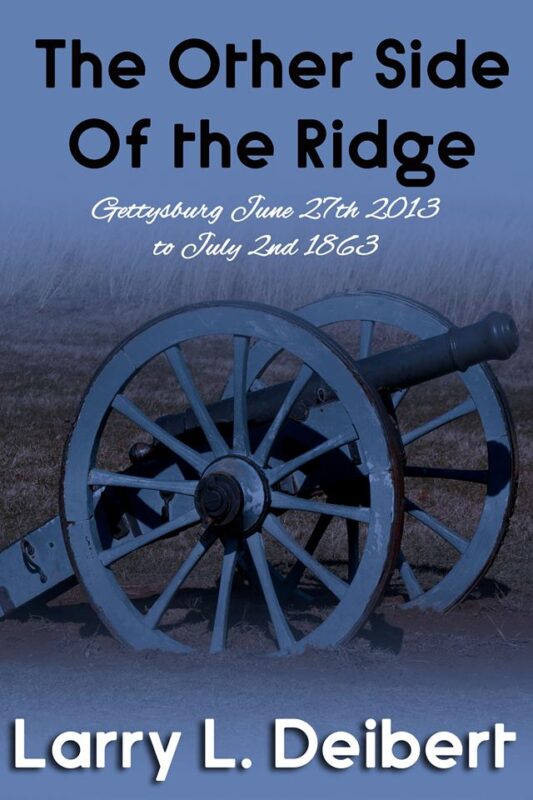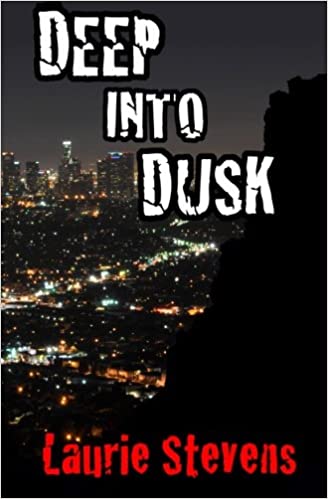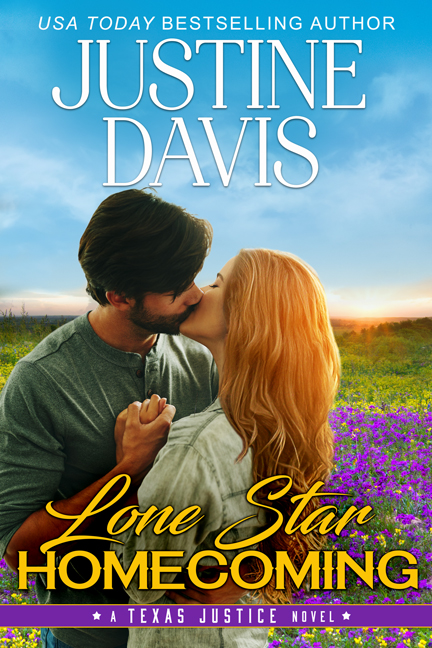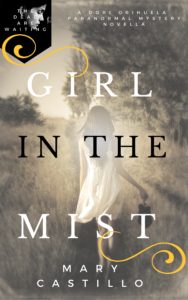CHEAP DATE: E-Book Pricing
January 31, 2011 by Rebecca Forster in category The Write Life by Rebecca Forster tagged as Authors, cheap ebooks, Free eBooks, pricing, readers, Rebecca Forsterby Rebecca Forster
When I was asked out on my first dinner date, my mother gave me some sage advice: “Order Chicken Kiev.â€
To this day, I don’t know if my mother was being considerate of my date’s financial status (Chicken Kiev was the cheapest thing on any menu) or was worried that I would be considered high maintenance and never be asked out again. Either way, I ate so much Chicken Kiev back then I thought I might be Ukranian.
Which brings me to the topic of the day: frugality. I don’t eat Chicken Kiev any longer (I’m not even sure I could look at it) but I do clean my own house, make most of my own clothes and serve leftovers for dinner. Yet, when it came to books, frugality was never a consideration. I know what it takes to write a novel. It is damn hard work. As an author, I hope that readers realize that they are paying for my effort in the same way I benefit from the expertise of anyone whose service I purchase. So, when I found a site called The Frugal E-Reader I had a few questions about books and price.
Enter Elizabeth Trudgeon Brown, Founder of the Frugal E-Reader: Kindle Finds for Under Nine (dollars), a review site for Indie and traditionally published authors alike whose books are available digitally. I wanted to ask her what role frugality plays in this new age of publishing.
Why did you decide to blog about inexpensive (some would say cheap) books instead of books in general?
While I was eagerly waiting for my Kindle to arrive this summer, I spent a lot of time at the Kindle Store and Discussion Forums searching for books to read. I caught a few discussions about $9.99 being the price cap that eBooks are generally accepted at, or that some readers were frustrated about prices being over $9.99 since the Agency Model took affect. I started to search for books that were under that threshold, and was pleased to find that so many were available! I decided to create a place that readers could come to so that they wouldn’t have to spend a lot of time and effort researching for themselves.
Your reviews are exceptionally detailed – nothing frugal there. Do you find your frugal followers lean toward one genre or another?
Mystery, thriller, or suspense titles are generally popular among the readers of The Frugal eReader. Classics are also widely accepted, so whenever I come across a classic novel that is under $9.00, I’m sure to include it. However, I believe each genre has its own following and as long as the specific premise is intriguing, it actually doesn’t matter what genre a title falls under to do well.
Are you setting a new decision matrix by leading with price?
When I first started to search for books to read on my Kindle, I was thrilled to find that along with some traditionally published books, there is a whole community of self-published authors that offer their books at lower prices. Without my Kindle and the many hours I spent searching for books, I may have never known of these authors or books. I’m not necessarily trying to set a new decision matrix; my goal is to provide one place where readers can discover books and authors at great values.
Do you think this ‘frugal’ approach creates a new mindset among readers?
Will they continue to expect the same quality and length of work for ever lower prices?
I don’t believe that quality should always be directly related to cost. Though something may be “frugal,†it shouldn’t mean that it can’t be of great value, and vice-versa. Whether a book is $0.99 or $9.99, readers won’t enjoy coming across typos, grammatical errors, or formatting issues.
One of the biggest complaints of digital books (especially Indies) is that there is no editorial oversight. Do you think ‘frugal E readers’ are more forgiving of editorial mistakes because of the lower prices?
I’m sure readers can be more forgiving of certain editorial mistakes with self-published authors – but to an extent. Though self-published authors may not have the immediate means to hire professional editors, proof readers, or artists, they should still put as much time and effort into proofing and editing their work as they have possible. The big picture is important here; with the expansion of the eBook market, readership and revenue are likely to increase. The possible additional funds should be used for additional editing, cover art, or anything else to improve upon the published work. No matter what the market is, investing revenue to improve upon or expand awareness of a product is essential to increased success.
I have seen discussion boards where readers resent paying for digital books. They believe since they are uploaded so easily they should be the lowest price – free, in the ideal world. What would you say to them?
In most cases, the eBook version is the lowest price. Although the price may still seem high for a digital copy (say $9.99), you could pay up to $24.99 for the same title if you were to purchase the paperback or hardback version. The higher price is understandable because in printed books, there are additional costs. However, there are rare occurrences where the Kindle price is more expensive than the paperback… this could potentially be due to the high demand of that particular eBook, or the fact that the digital version provides instant gratification.
I can understand how people may feel that the digital versions should be free, especially if they have already purchased the same title as a paperback or hardback. We may see this one day, as we do now with our music or certain DVDs and Blu-Rays. However, readers should also keep in mind that what we are essentially paying for is the story; the time and effort the author took to create it, and the intellectual entertainment that the story provides – no matter what format it’s in.
What is your advice to traditionally published and Indie authors regarding price as they enter this market?
I hope that the authors see the value in maintaining reasonable prices for their work as the market for eBooks continues to increase. They shouldn’t fear pricing their books low – especially if they are newcomers to the publishing world. Let me reiterate that price does not always correlate directly with quality. A lower priced book should not mean that it’s “cheap†in the sense that it is poorly written, or poorly formatted. When an unknown author enters the market, they should consider pricing their work as a means to develop their brand. Also keep in mind that a reader may be more inclined to purchase the work of a new author at a lower price – less risk. Once the author can establish themselves and the demand for their work increases, then prices can be adjusted accordingly.
Check out The Frugal eReader at:
Blog: http://www.thefrugalereader.com/
facebook: http://www.facebook.com/pages/The-Frugal-eReader/101086513289732
Twitter: http://twitter.com/FrugaleReader
MY MAN JACK: Lessons Learned from LaLanne
January 25, 2011 by Rebecca Forster in category The Write Life by Rebecca Forster tagged as Adventures in Writing, creativity, grandparents, Inspirational fiction, mentor, Rebecca Forster, writing processWhen I was eight years old I spent the night with my grandmother, a handsome woman who, as I look back, was probably younger than I am today but looked 10 years older. She was a German lady who wore housedresses and pin-curled her grey hair. She was proper, punctual and particular but when I woke up the morning of our sleepover, I found her holding onto the back of a chair, shoeless and enthralled by the man on the television. His name was Jack Lalanne.
Jack held onto the back of a chair, too, but he wore a skin-tight jumpsuit that showed off his muscles – all of them. I had never seen a man dressed like that. Even at eight, I knew I was watching something extraordinary – maybe even a little naughty. Watching my grandmother lift her leg ever so slightly, put her arm over her head like a ballerina, bend from the waist so that I could actually see the backs of her knees was awesome. Grandpa was gone. The doors were locked. The only sound was Jack’s voice encouraging my grandmother to do things I never thought she could do. I was privy to something I had no word for and I never told anyone about grandma’s morning with Jack.
Almost twenty years later, I met Jack Lalanne for real. I was an account executive with a major advertising agency and Jack LaLanne Health Spa was my client. Though I didn’t know it then, I was working on an account that was the forerunner of a social and health phenomena of fitness clubs, spas and specialty gyms. Before 24 Hour Fitness, Equinox or day spas there was Jack Lalanne.
We met during a commercial shoot. My job was to make sure we stayed on budget, on schedule, on message and that the client was happy. To this day, I don’t know if the client was happy. Jack, dressed in his iconic black jumpsuit, stood apart and managed only a distracted hello.
He was perpetual motion as he waited for his call: flexing, stretching, moving. And, most interestingly, he talked to himself. Eventually, I realized he was rehearsing his line. He only had one but the man was nervous and that made me curious.
How could a man who inspired my grandmother to take off her shoes and exercise, a man who spoke to people on TV every day be nervous about delivering one line? It took me many years and my own journey as a writer to understand why, that day on the set, Jack LaLanne was sweating. It was because he was not a pitchman, he was an advocate. Jack LaLanne sold best when he sold in his own language and with his own message. That man not only inspired people to exercise but to be their best in every aspect of their lives.
A few days ago, I woke up and found that Jack LaLanne had passed away. I doubt he would have remembered me but I will always remember him. I will remember him as a part of my childhood but I will also remember what he taught me about being a creative person. So, here you go. The lessons I learned from Jack.
Write, compose, draw, speak, work with love and focus.
Always exercise: your mind, your imagination, your skill.
Be consistent. Be a brand. Craft your own “black jumpsuit” so that when people pick up your book or see your picture or hear your song they will know what they’re getting.
Plan your career, do not calculate it. Eventually, calculation will override passion and you will lose your “voice”.
Do not worry about how many people read your work. Creating something that is meaningful to one person is more important than having thousands know your name but not remember your work.
Share your passion. If you have a chance to inspire, to coach, to encourage, do it. Do it with abandon. Do it with energy. Do it without concern that sharing your knowledge will take something away from you. It won’t.
Thank you Jack. I was inspired by your energy, your abandon and your goodwill. I will pay it forward and, when I do, I will think of you.
0 0 Read moreHeck Yeah! Meeting Men on the Internet
December 2, 2010 by Rebecca Forster in category The Write Life by Rebecca Forster tagged as internet relationships, legal fiction, men readers, Rebecca Forster, Rebecca's Posts
WRITE ANGLE
February 15, 2008 by Rebecca Forster in category The Write Life by Rebecca Forster tagged as Rebecca Forster, Write Angleby Rebecca Forster
Consider the month of February. It is an odd and joyous month. Christmas is over but bills still trickle in. The New Year already feels a little worn. Odd.
Spring is just around the corner and summer is on the horizon. Joyous.
February is the month of odd days. How many? 29? 27? 21? Where’s the rhyme when I need it?
My last few books came out in February. Odd or joyous, who can say?
My husband and oldest son are Aquarius types. Their birthdates are the 8th and 9th days of February. Twenty-three years ago my husband, in the hopes of having my son born on the same day as he was, fed me a spicy burrito. It brought on labor, just not fast enough. Oddly joyous?
The point is that things that make us happiest, things we remember, are always a bit odd and a bit joyous.
There is an author I admire. His name is Richard Jordan and he writes a mystery series about old Hollywood and a wonderful woman named Polly Pepper. His latest novel, FINAL CURTAIN, is a Polly party. A veritable gala of memorable characterization.
Polly is such a delight because Richard adores the charmingly odd lady. Every word he writes about this woman is joyous. From her ever-present champagne to the disappointing revival of an acting career that embroils her in a murder investigation (a director is clubbed to death with an Emmy), Polly is Polly. Odd, joyous, charming, challenging. She is a reader’s delight; she is a character-in-waiting for some smart and talented actress. Rita Wilson, are you listening?
Just like February, FINAL CURTAIN ends too quickly. And, as February flies by me, faster than I care to admit, I am beginning a new project. As I do so I will be inspired by the odd month of February, by Richard Jordan and his joyful Polly and I will write with abandon. I will let my imagination spread its wings and will not allow the rules and agent warnings and ever-changing market forces to clip them.
That will be oddly, joyously, fabulously satisfying. This will be writing as it should be.

Rebecca Forster
http://www.rebeccaforster.com/
HOSTILE WITNESS
SILENT WITNESS
PRIVILEGED WITNESS
WRITE ANGLE
January 15, 2008 by Rebecca Forster in category The Write Life by Rebecca Forster tagged as Rebecca Forster, Write Angleby Rebecca Forster
When the clock struck twelve on New Year’s Eve I kissed:
a. An Italian woman
b. Five French men
c. My husband
d. My mother
e. All of the above
The answer is “e”, all of the above.
We went to Paris over Christmas, a long-planned trip to celebrate my son’s graduation from college and my mother’s 83 years. On the plane, I met two ladies from Baltimore who invited us to their rented apartment for New Year’s Eve. We didn’t exactly forget about them, but the ensuing week was filled with chasing down all the sites of Paris and, suddenly, it was time go home.
On New Year’s Eve, we dined in a tiny restaurant where we sat close enough to a family from Ohio to know that their son wasn’t a big fan of escargot and their daughter was angling for an unaffordable Parisian wedding gown. My family and I talked about all the nice things we’d seen, the lines we waited in. Ours had been a good trip but I wasn’t sure it was memorable.
Ambling back to the hotel, fully intending to pack and get a good night’s sleep, we advertently stumbled upon the Rue du Mond – the street where the Baltimore ladies were staying. To call it a street, though, was generous. This was an alley and it was shadowy, cold and foreboding. High rock walls lined each side, above us towered darkened apartments. Still, we ventured in, rang what we assumed was a bell in an ancient green gate. When no one came, high-tailed it out of there, convincing ourselves adventure was not on the agenda.
But it was.
A note was waiting at our hotel. Baltimore had tracked us down! We called the number they left and, a few minutes later, armed with a security code and a warning that we would have to hunt for lights in the old courtyard, we traipsed back to the alley. Behind the green gate were three flights of stairs that had been worn into waves of uneven stone over generations. They felt treacherous and we went slowly. Finally, we found ourselves in a 16th-century apartment in the company not only of the two women from Baltimore but their Italian friends.
My husband ducked under doorways meant for men who stood at least a foot shorter than he. One of the Italian ladies spoke German. She and my mother were off, chattering in a language I don’t understand. I exchanged stories with the ladies from the plane. We drank wine and champagne and, at ten minutes to midnight, in a flurry of winter coats, we dashed for the Pantheon where we would be able to see the lights on the Eiffel Tower as midnight struck.
We were too late. A great roar resounded throughout Paris as people greeted the New Year. One of the Italian ladies grabbed my husband for a kiss. The other was bussing my mother’s cheeks. We passed one another along – friends for that night – wishing each one well. Arm-in-arm we made it to the square just as a group of drunkenly joyous and extraordinarily handsome young men burst out of a bar. The kissing started all over again. My mother giggled and raised her cheeks, my husband slapped them on the back as if they were his sons. We babbled good wishes in poor English and even worse French.
And then it was done. The night was over. The champagne was gone. We were all headed home, but now it was with memories. They wouldn’t be of churches and museums, palaces and restaurants but of New Year’s Eve and the unexpected.
I spoke to two women on an airplane, called a number in a note, walked through a green gate in an ancient wall, drank champagne on a Paris street, returned an Italian woman’s kiss on the cheeks, held my husband’s hand while I watched the lights of the Eiffel Tower, saw my mother turn back into the girl she once was as a handsome young man took her in his arms and wished her a Happy New Year with a kiss.
In the dark Paris night, in the course of only a few hours, I was reminded that stories are memorable only when filled with the unexpected, with choices, with characters who are larger than life. Good stories do not set us aside as spectators but draw us into the action. A good author, weaves into their story all the elements of the moment: the feel of the air, the sounds of the night, the touch of another person. Those are the things that etch a story into memory, a heart, a mind.
I will think of Paris when I find myself at a loss for words. I will make my characters speak, allow them an adventure, let them open the green gate to see what lies behind it.

Rebecca Foster
Rebecca Forster
rebeccaforster@aol.com
http://www.rebeccaforster.com/
HOSTILE WITNESS
SILENT WITNESS
PRIVILEGED WITNESS
Affiliate Links
A Slice of Orange is an affiliate with some of the booksellers listed on this website, including Barnes & Nobel, Books A Million, iBooks, Kobo, and Smashwords. This means A Slice of Orange may earn a small advertising fee from sales made through the links used on this website. There are reminders of these affiliate links on the pages for individual books.
Search A Slice of Orange
Find a Column
Archives
Featured Books
THE OTHER SIDE OF THE RIDGE Gettysbury, June 27th 2013 to July 2nd 1863
Gettysburg, June 27th, 2013 to July 2nd, 1863: Will Dan Rodin change the course of the Civil War?
More info →DEEP INTO DUSK
In the second pulse-pounding thriller in the series, Detective Gabriel McRay is once again forced to face his inner demons
More info →GIRL IN THE MIST
We all keep secrets, especially from the ones we love.
More info →IN THE SHADOW OF THE VOLCANO
One Ex-Intelligence Official's Journey through Slums, Prisons, and Leper Colonies to the Heart of Latin America
More info →Newsletter
Contributing Authors
Search A Slice of Orange
Find a Column
Archives
Authors in the Bookstore
- A. E. Decker
- A. J. Scudiere
- A.J. Sidransky
- A.M. Roark
- Abby Collette
- Alanna Lucus
- Albert Marrin
- Alice Duncan
- Alina K. Field
- Alison Green Myers
- Andi Lawrencovna
- Andrew C Raiford
- Angela Pryce
- Aviva Vaughn
- Barbara Ankrum
- Bethlehem Writers Group, LLC
- Carol L. Wright
- Celeste Barclay
- Christina Alexandra
- Christopher D. Ochs
- Claire Davon
- Claire Naden
- Courtnee Turner Hoyle
- Courtney Annicchiarico
- D. Lieber
- Daniel V. Meier Jr.
- Debra Dixon
- Debra H. Goldstein
- Debra Holland
- Dee Ann Palmer
- Denise M. Colby
- Diane Benefiel
- Diane Sismour
- Dianna Sinovic
- DT Krippene
- E.B. Dawson
- Emilie Dallaire
- Emily Brightwell
- Emily PW Murphy
- Fae Rowen
- Faith L. Justice
- Frances Amati
- Geralyn Corcillo
- Glynnis Campbell
- Greg Jolley
- H. O. Charles
- Jaclyn Roché
- Jacqueline Diamond
- Janet Lynn and Will Zeilinger
- Jaya Mehta
- Jeannine Atkins
- Jeff Baird
- Jenna Barwin
- Jenne Kern
- Jennifer D. Bokal
- Jennifer Lyon
- Jerome W. McFadden
- Jill Piscitello
- Jina Bacarr
- Jo A. Hiestand
- Jodi Bogert
- Jolina Petersheim
- Jonathan Maberry
- Joy Allyson
- Judy Duarte
- Justin Murphy
- Justine Davis
- Kat Martin
- Kidd Wadsworth
- Kitty Bucholtz
- Kristy Tate
- Larry Deibert
- Larry Hamilton
- Laura Drake
- Laurie Stevens
- Leslie Knowles
- Li-Ying Lundquist
- Linda Carroll-Bradd
- Linda Lappin
- Linda McLaughlin
- Linda O. Johnston
- Lisa Preston
- Lolo Paige
- Loran Holt
- Lynette M. Burrows
- Lyssa Kay Adams
- Madeline Ash
- Margarita Engle
- Marguerite Quantaine
- Marianne H. Donley
- Mary Castillo
- Maureen Klovers
- Megan Haskell
- Melanie Waterbury
- Melisa Rivero
- Melissa Chambers
- Melodie Winawer
- Meriam Wilhelm
- Mikel J. Wilson
- Mindy Neff
- Monica McCabe
- Nancy Brashear
- Neetu Malik
- Nikki Prince
- Once Upon Anthologies
- Paula Gail Benson
- Penny Reid
- Peter J Barbour
- Priscilla Oliveras
- R. H. Kohno
- Rachel Hailey
- Ralph Hieb
- Ramcy Diek
- Ransom Stephens
- Rebecca Forster
- Renae Wrich
- Roxy Matthews
- Ryder Hunte Clancy
- Sally Paradysz
- Sheila Colón-Bagley
- Simone de Muñoz
- Sophie Barnes
- Susan Kaye Quinn
- Susan Lynn Meyer
- Susan Squires
- T. D. Fox
- Tara C. Allred
- Tara Lain
- Tari Lynn Jewett
- Terri Osburn
- Tracy Reed
- Vera Jane Cook
- Vicki Crum
- Writing Something Romantic
Affiliate Links
A Slice of Orange is an affiliate with some of the booksellers listed on this website, including Barnes & Nobel, Books A Million, iBooks, Kobo, and Smashwords. This means A Slice of Orange may earn a small advertising fee from sales made through the links used on this website. There are reminders of these affiliate links on the pages for individual books.











































